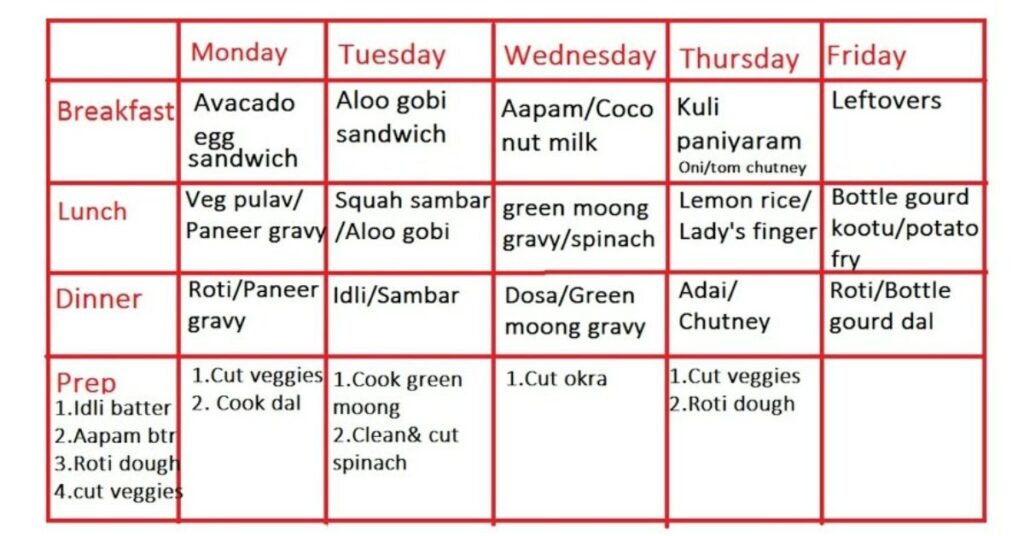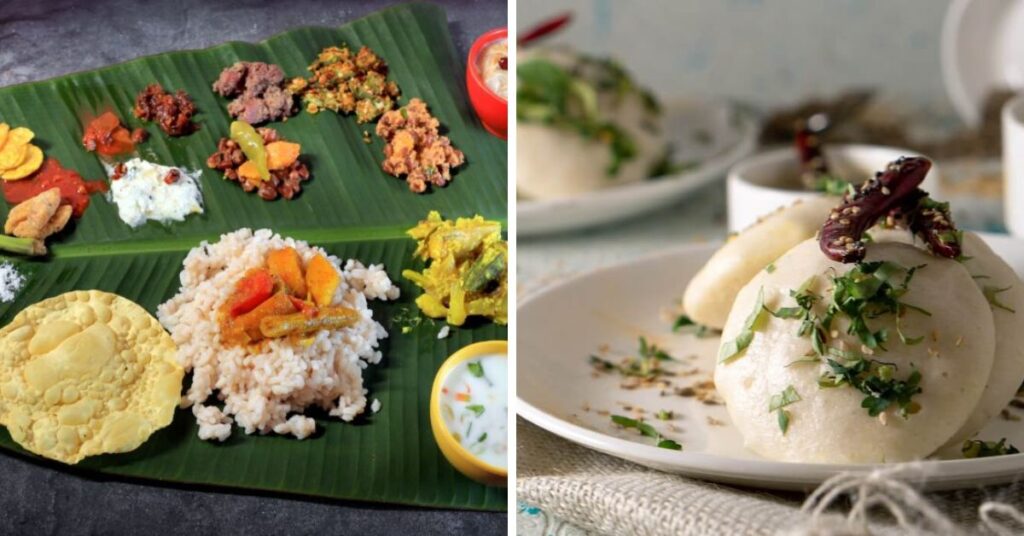Weight loss isn’t one-size-fits-all, especially in a culturally rich and cuisine-driven state like Kerala. People here enjoy a variety of traditional dishes, many of which are high in coconut oil, rice, and starchy vegetables. While delicious and nourishing, these foods can lead to unintentional weight gain if consumed without balance.
A customized diet plan for weight loss Kerala style considers not just calorie counts but also biological, lifestyle, and climatic influences unique to the region. With rising obesity and lifestyle-related disorders in Kerala, it’s time to take a scientific, local, and sustainable approach to diet planning.
Understanding Obesity from a Kerala Perspective
Obesity is no longer a problem limited to Western countries Kerala, one of India’s most literate and health-conscious states, is now witnessing a sharp rise in obesity rates. According to several health surveys, nearly 40% of adults in Kerala are either overweight or obese. What makes this alarming is that obesity here often coexists with diabetes, high blood pressure, and heart disease, forming what doctors call metabolic syndrome.
But why is obesity rising in Kerala, despite an abundance of natural foods and a historically active lifestyle?
Several key factors contribute:
1. High-Carbohydrate Diets
Kerala meals traditionally rely heavily on polished white rice, which has a high glycemic index. When consumed in large amounts without balancing fiber or protein, it spikes blood sugar and increases fat storage especially in the abdomen.
2. Frequent Snacking on Fried Foods
From banana chips and pazham pori to parippu vadas, Kerala snacks are delicious but calorie-dense. Fried foods, even in coconut oil, can quickly increase body fat if eaten regularly and in large portions.
3. Sedentary Lifestyles
Urbanization has shifted people from labor-intensive work to desk jobs. Combine that with minimal exercise and extended screen time, and calorie intake quickly exceeds calorie expenditure.
4. Late Night Eating Habits
Many households in Kerala serve dinner after 9 PM, which doesn’t give the body enough time to digest before sleep. This disrupts metabolism and contributes to fat gain, particularly visceral fat.
5. Emotional and Stress Eating
Changing family structures, job stress, and academic pressure also lead many people to indulge in comfort foods, which are often sugary, salty, or oily.
6. Misconception Around “Healthy” Traditional Foods
While coconut oil, plantains, and seafood have health benefits, overconsumption or lack of balance with other food groups can turn these into fat-gain culprits.
Biological Insight: How Kerala Foods Affect Your Weight
Kerala’s traditional cuisine is deeply rooted in natural, locally sourced ingredients but not all of them support weight loss when consumed in excess or in the wrong combinations. To craft an effective diet plan for weight loss Kerala, it’s essential to understand how the body biologically responds to these foods.
Here’s a science-backed look at how common Kerala staples impact your metabolism, hormones, and fat storage:
1. White Rice and Blood Sugar Spikes
Kerala meals often revolve around white rice, which is high in simple carbohydrates. Biologically, this leads to a rapid rise in blood glucose, triggering insulin release a hormone that signals your body to store fat, especially around the belly.
- Effect: Promotes fat accumulation, increases hunger shortly after eating.
- Fix: Swap white rice for red rice, matta rice, or millets, which digest slowly and help regulate blood sugar.
2. Coconut Oil: A Double-Edged Sword
Coconut oil contains medium-chain triglycerides (MCTs) that may promote fat burning in small amounts. However, excess use adds calories without volume, making it easy to overeat without feeling full.
- Effect: Can boost metabolism in moderation, but leads to calorie surplus if overused.
- Fix: Limit intake to 2-3 teaspoons per day. Balance it with fiber and lean protein to stay full longer.
3. Starchy Vegetables and Insulin Resistance
Vegetables like yam (chena), tapioca (kappa), and jackfruit are staples in Kerala. While nutritious, they’re high in starch, which can worsen insulin resistance in overweight individuals.
- Effect: Quick energy release, potential fat gain if not offset by activity.
- Fix: Pair starchy foods with non-starchy vegetables and protein for slower digestion and better satiety.
4. Fermented Foods and Gut Health
Items like idli, dosa, and appam are made from fermented batters, which support probiotic growth and improve digestion. A healthy gut biome enhances nutrient absorption and supports weight regulation.
- Effect: Boosts metabolism, supports healthy gut flora.
- Fix: Prefer fermented foods made from millets or mixed grains instead of only white rice.
5. Spices That Stimulate Fat Burn
Kerala cuisine is rich in spices like turmeric, black pepper, ginger, cinnamon, and cumin. These have proven biological effects such as improving insulin sensitivity, reducing inflammation, and activating thermogenesis your body’s fat-burning process.
- Effect: Natural fat burners when used consistently.
- Fix: Use freshly ground spices in curries, teas, or herbal decoctions for maximum benefit.
6. Protein Deficiency Slows Fat Loss
Many Kerala diets are low in protein, especially vegetarian ones. Without adequate protein, the body loses muscle during weight loss, which slows metabolism.
- Effect: Slower fat burn, muscle loss, fatigue.
- Fix: Add lentils, legumes, eggs, lean fish, sprouts, and paneer to meals regularly.
7. Dairy and Hormonal Balance
Curd and buttermilk are common in Kerala households. When consumed in the right amount, they can help regulate digestion and support healthy hormone function, which is essential for fat metabolism.
- Effect: Enhances gut flora, balances cortisol levels.
- Fix: Opt for low-fat or homemade curd, and avoid processed dairy products high in sugar.

Core Principles of a Kerala-Based Weight Loss Diet
To effectively lose weight while staying true to Kerala’s culinary heritage, it’s essential to understand and follow a few core dietary principles grounded in nutrition science and local food wisdom. A Kerala-based weight loss diet should not only aim at cutting calories but also support metabolic balance, hormonal health, and digestive efficiency.
Below are the key pillars of a successful and sustainable diet plan for weight loss Kerala style:
- Replace white rice with red rice, brown rice, or millets
- Use coconut oil in moderation (2–3 teaspoons daily)
- Include protein in every meal (eggs, fish, legumes, sprouts)
- Add fiber-rich local vegetables like gourds and greens
- Start your day with herbal waters (jeera, coriander, fenugreek)
- Follow traditional thali-style portion control
- Avoid eating after 8 PM and practice intermittent fasting
- Limit sugary teas, fried snacks, and bakery items
- Use fat-burning spices like turmeric, ginger, and cinnamon
- Be consistent with your diet plan for weight loss Kerala
Sample Diet Plan for Weight Loss Kerala (7-Day Guide)
Here is a Sample Diet Plan for Weight Loss Kerala (7-Day Guide) fully aligned with Kerala’s traditional foods and tailored for effective, sustainable fat loss. It’s high in fiber, moderate in healthy fats, balanced in protein, and focuses on portion control, hydration, and clean eating principles.
This 7-day diet plan for weight loss Kerala style uses local ingredients, follows smart combinations, and is biologically suited for optimal digestion and metabolism.
General Guidelines:
- Drink herbal water (jeera/coriander/fenugreek) first thing in the morning
- Hydrate with at least 2.5–3 liters of water daily
- Avoid eating after 8 PM
- Use 2–3 tsp coconut oil/day max
- Prefer steamed, boiled, or sautéed preparations
🗓️ Day 1
- Morning Drink: Warm water with cumin seeds
- Breakfast: Ragi puttu + green gram curry
- Mid-Morning Snack: Tender coconut water + 5 almonds
- Lunch: Red rice + moringa thoran + mathan erissery + grilled sardine
- Evening Snack: Buttermilk + roasted chana
- Dinner: Oats kanji + sautéed spinach + cucumber salad
🗓️ Day 2
- Morning Drink: Coriander seed water
- Breakfast: Vegetable upma (less oil) + tomato chutney
- Mid-Morning Snack: 1 guava or 1 apple
- Lunch: Millet rice + avial + moong dal curry + fish pollichathu
- Evening Snack: Herbal tea + boiled corn with pepper
- Dinner: Vegetable soup + green gram dosa (2 nos)
🗓️ Day 3
- Morning Drink: Fenugreek water
- Breakfast: Idli (2–3) + sambar + mint chutney
- Mid-Morning Snack: Amla juice (unsweetened)
- Lunch: Brown rice + cabbage thoran + rasam + egg curry
- Evening Snack: Cucumber slices + 1 boiled egg
- Dinner: Broken wheat upma + sautéed beans + buttermilk
🗓️ Day 4
- Morning Drink: Jeera water
- Breakfast: Ragi dosa + coconut chutney
- Mid-Morning Snack: 1 orange or 1 handful of peanuts
- Lunch: Red rice + snake gourd thoran + toor dal curry + grilled chicken
- Evening Snack: Herbal tea + carrot sticks
- Dinner: Clear vegetable stew + 1 whole wheat roti + salad
🗓️ Day 5
- Morning Drink: Warm lemon water with cinnamon
- Breakfast: Vegetable uthappam + mint chutney
- Mid-Morning Snack: 5 soaked almonds + 2 walnuts
- Lunch: Millet rice + ash gourd curry + cabbage thoran + fish curry (light)
- Evening Snack: Buttermilk + roasted peanuts
- Dinner: Moong dal soup + sautéed mushrooms + cucumber
🗓️ Day 6
- Morning Drink: Coriander and fennel water
- Breakfast: Steamed banana (small) + boiled green gram
- Mid-Morning Snack: 1 cup papaya cubes
- Lunch: Red rice + beetroot thoran + sambhar + egg omelet
- Evening Snack: Green tea + roasted lotus seeds
- Dinner: Millet kanji + sautéed bottle gourd + curd
🗓️ Day 7
- Morning Drink: Ginger, lemon, and honey warm water
- Breakfast: Oats dosa + tomato chutney
- Mid-Morning Snack: Buttermilk + 4 soaked dates
- Lunch: Brown rice + drumstick leaf thoran + dal curry + grilled fish
- Evening Snack: Coconut water + sprouts salad
- Dinner: Vegetable stew (no coconut milk) + wheat phulka (1–2)
Herbal and Ayurvedic Support in Kerala Dieting
Kerala, being the land of Ayurveda, offers powerful natural remedies that support weight loss holistically. Ayurveda believes that weight gain is a result of imbalanced doshas (especially Kapha), poor digestion (Agni), and toxins (Ama) accumulating in the body.
Integrating herbal and Ayurvedic practices into your diet plan for weight loss Kerala style not only helps shed excess fat but also improves digestion, metabolism, and mental clarity naturally and safely.
Here’s a list-wise guide to the most effective Ayurvedic herbs, spices, and practices that can accelerate your weight loss journey in Kerala:
Top Herbal & Ayurvedic Supports for Kerala Dieting
- Triphala Powder
- Taken at bedtime (½ tsp with warm water)
- Helps detoxify the colon and boost digestion
- Supports gentle fat reduction and relieves bloating
- Cumin, Coriander, and Fennel Water (CCF Water)
- Sip throughout the day
- Improves digestion, reduces water retention, and mobilizes fat
- Balances all three doshas (Vata, Pitta, Kapha)
- Ginger-Lemon-Honey Decoction
- Taken on an empty stomach in the morning
- Increases metabolic rate and burns stored fat
- Fights cold Kapha imbalance that leads to sluggishness
- Guggul (Commiphora mukul)
- Available in capsule or powder form (consult practitioner)
- Powerful lipid-lowering and fat-burning Ayurvedic herb
- Stimulates thyroid and balances hormones
- Turmeric with Black Pepper
- Take with warm water or mix in meals
- Reduces inflammation and insulin resistance
- Enhances liver detox and promotes healthy fat metabolism
- Amla (Indian Gooseberry) Juice
- Take 20 ml with water in the morning
- Rich in Vitamin C and antioxidants
- Strengthens liver, improves fat metabolism, and balances digestion
- Ayurvedic Herbal Teas
- Cumin-tea, coriander-tea, cinnamon-tea, tulsi-tea
- Improve satiety, boost fat burning, and regulate sugar levels
- Replace milk tea or sugary drinks with these
- Ashwagandha (Withania somnifera)
- Stress-reducing adaptogen that helps with emotional eating
- Supports thyroid health and fat breakdown
- Best taken in capsule or powder form (evening is ideal)
- Kokum (Garcinia indica) Juice or Water
- Traditionally consumed in Kerala coastal diets
- Suppresses appetite naturally
- Prevents acid reflux and aids in fat loss
- Ayurvedic Detox Days (Once Weekly)
- Eat only khichdi, herbal teas, fruits, and kanji for one day
- Allows the digestive system to rest and burn stored fat
- Boosts mental clarity and improves gut health

Food to Avoid in a Kerala Diet for Weight Loss
Even the healthiest regional diet can lead to weight gain if certain foods are overconsumed or prepared in unhealthy ways. While Kerala cuisine is flavorful and rich in tradition, it also includes several items that are calorie-dense, carb-heavy, or high in unhealthy fats.
If you’re following a diet plan for weight loss Kerala, you’ll need to minimize or avoid these foods to help your body burn fat efficiently, control blood sugar, and reduce inflammation.
Here’s a clear list of foods to limit or eliminate from your Kerala weight loss diet:
1. Polished White Rice
- High glycemic index causes insulin spikes
- Leads to fat storage and post-meal lethargy
- Replace with red rice, brown rice, or millets
2. Deep-Fried Snacks
- Includes banana chips, parippu vada, uzhunnu vada, pazham pori
- Loaded with calories and saturated fat
- Contributes to belly fat and sluggish digestion
3. Sweetened Beverages
- Milk tea with sugar, coffee with condensed milk, packaged fruit juices
- High in hidden sugars that spike insulin
- Replace with green tea, herbal tea, or black coffee (unsweetened)
4. Bakery Foods
- Items like puffs, cakes, biscuits, and buns
- Made with refined flour, trans fats, and excess sugar
- Disrupt metabolism and promote weight gain
5. Coconut Milk-Based Gravies (Excess)
- While coconut milk has healthy fats, overuse adds too many calories
- Frequent consumption leads to fat surplus, especially in sedentary individuals
- Use occasionally, in controlled portions
6. Sugar and Jaggery-Based Sweets
- Halwa, laddu, payasam (especially made with white sugar or jaggery)
- Spikes blood sugar and adds empty calories
- Save for special occasions, in moderation
7. Heavy Evening Meals with Rice
- Eating rice-based meals at night slows digestion
- Encourages fat storage due to inactivity during sleep
- Opt for lighter dinners like soups, salads, and vegetable stir-fries
8. Refined Oil (Repeatedly Used)
- Avoid reusing oil for frying
- Creates toxic free radicals and promotes inflammation
- Stick to fresh coconut oil or ghee in limited amounts
9. Pickles and Salty Papad
- High sodium content leads to water retention and bloating
- Can increase blood pressure and strain the kidneys
- Use only small quantities, occasionally
10. Overeating “Healthy” Staples
- Excess red rice, jackfruit, or tapioca even if healthy can cause calorie overload
- Mind portion sizes even with traditional dishes
- Balance your plate with fiber and protein to stay full
Women-Specific Kerala Diet Tips for Healthy Weight Loss
When it comes to managing weight effectively, women in Kerala face unique biological and lifestyle challenges. From hormonal fluctuations to thyroid imbalances and PCOD, weight loss for women isn’t just about cutting calories it’s about creating a diet that supports overall hormonal and metabolic health. That’s why a customized diet plan for weight loss Kerala is essential for women.
Boost Iron Intake Naturally
Include iron-rich Kerala staples like:
- Drumstick leaves (moringa)
- Beetroot thoran
- Spinach curry
- Lentil (parippu) dishes
Pair these with lemon or amla to enhance iron absorption.
Focus on High-Fiber Seasonal Vegetables
To reduce bloating and regulate blood sugar:
- Ash gourd (kumbalanga) stew
- Raw papaya curry
- Cucumber pachadi
- Banana stem juice
Prioritize Protein in Every Meal
For hormonal balance and satiety, add:
- Green gram (cherupayar)
- Moong sprouts
- Boiled eggs or omelets
- Grilled or steamed fish
Include Healthy Fats for Hormonal Support
In moderation:
- Cold-pressed coconut oil
- Almonds, walnuts
- Avocado (if available)
Stay Hydrated the Right Way
Avoid sugary drinks and opt for:
- Jeera (cumin) water
- Tulsi or cinnamon tea
- Spiced buttermilk
Support Thyroid & Hormones with Ayurveda
Women with thyroid issues can benefit from:
- Iodine-rich fish like sardines
- Sunflower or Brazil nuts
- Shatavari and amla supplements
Sync Diet with Menstrual Cycle
- PMS: light khichdi, ginger tea
- Post-menstrual: fiber and protein-rich meals
- Ovulation: cooling foods and hydration
By incorporating these principles, women can personalize their diet plan for weight loss Kerala, leading to sustainable fat loss, hormonal harmony, and overall wellness.
Common Mistakes in Kerala Dieting (with Focus on Weight Loss)
Avoiding these typical missteps can significantly improve the success of your diet plan for weight loss Kerala:
- Overeating Red or White Rice
Even though Kerala parboiled rice (matta) is better than polished white rice, excessive portions spike blood sugar and hinder fat loss. - Skipping Protein
Many meals are carb-heavy with little protein. Without enough protein, metabolism slows, and muscle mass decreases especially in women. - Excessive Use of Coconut Oil
Though healthier than refined oils, overusing coconut oil (more than 2–3 tsp/day) adds unnecessary calories. - Relying Too Much on Bananas and Jackfruit
While nutritious, these are high in natural sugars. Eating them daily in large amounts can delay weight loss. - Ignoring Portion Sizes
Traditional Kerala meals are often served on large plates with rice as the base. Without portion control, even healthy meals can result in weight gain. - Too Many Fried Snacks
Parippu vada, pazham pori, and chips are delicious but fried in oil, they quickly add up in fat content. - Skipping Breakfast or Eating Late Dinners
Erratic meal timings confuse your body’s metabolism. Eating late slows digestion and stores fat. - Underestimating Liquid Calories
Chaya (tea) with sugar, soda, and sweetened juices add hidden calories that sabotage your diet. - No Physical Activity
Even the best diet plan for weight loss Kerala needs support from regular exercise like walking, yoga, or farming chores. - Crash Dieting or Starving
Skipping meals slows metabolism and causes nutrient loss. Balanced, sustainable eating is key.
Avoiding these mistakes will make your Kerala-style weight loss journey healthier, more effective, and long-lasting.
Final Thoughts and Realistic Results
Following a diet plan for weight loss Kerala way doesn’t mean sacrificing your food culture. It’s about honoring traditional foods, eating consciously, and balancing modern lifestyle demands.
Expect sustainable results like:
- 2 to 4 kg weight loss per month
- Better energy and digestion
- Lower blood sugar and cholesterol
- Visible inch loss with consistency
Stay patient. This is a lifestyle, not a crash diet.







